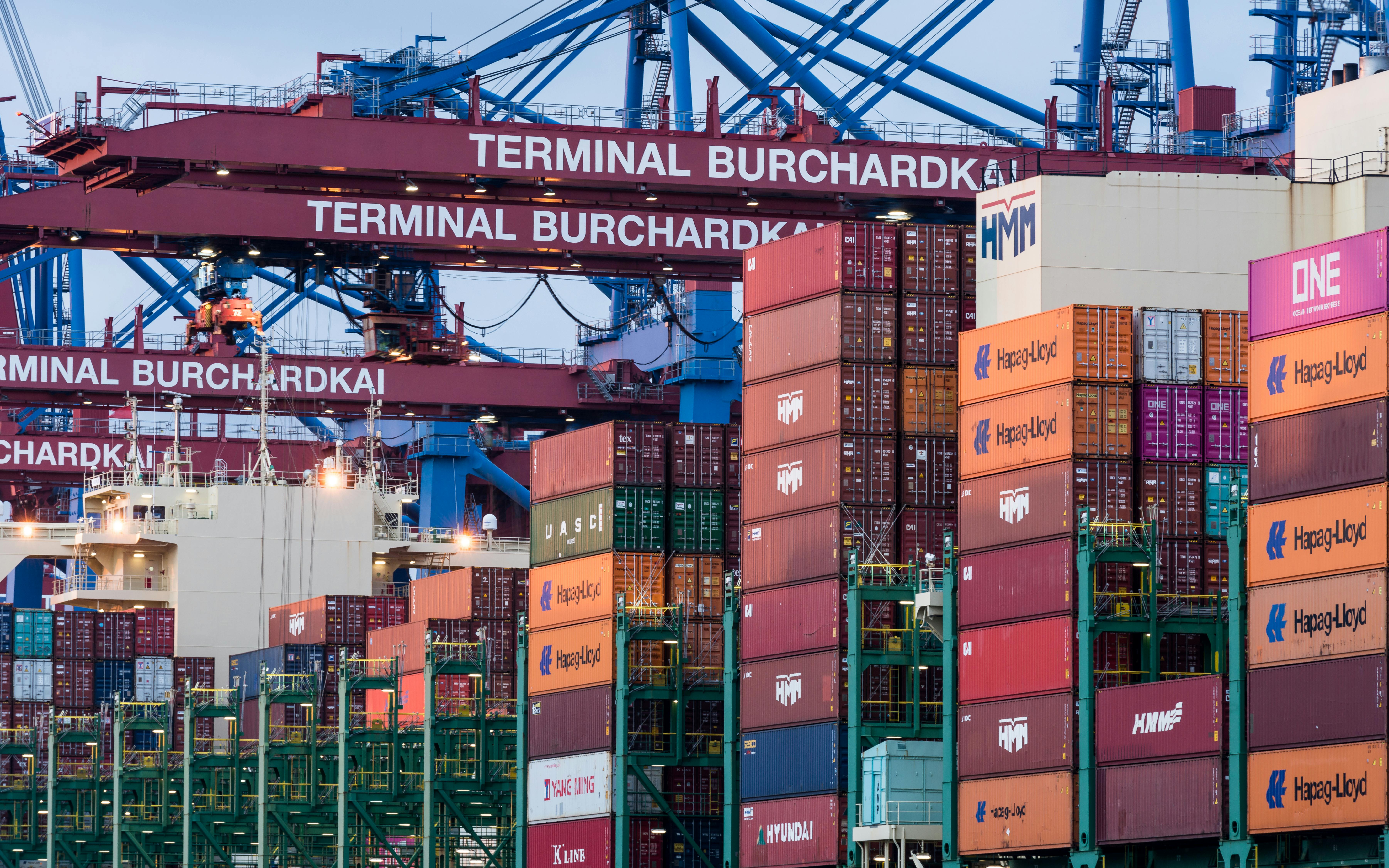
Free trade opens borders to ‘food’ and ‘food for thought’ aplenty. For IP owners (“rightsholders”) in particular, a common challenge is how the free movement of goods may impact their IP rights.
Understanding the “Exhaustion Principle” in IP law becomes vital. Also known as “the First Sale doctrine,” Exhaustion limits a rightsholder from controlling the distribution of goods in which they hold IP rights. In essence, IP rights grant them a monopoly over their creation, which includes the exclusive right to use, sell, distribute, or license the creation and foreclose these rights against third parties.
This state of play closely resembles what obtains in the “territorial” exhaustion doctrine, where IP rights in a product are exhausted within a given territory. For instance, when a pharmaceutical product protected by IP rights (e.g., a patented product or a copyrighted work) is first sold within the European Economic Area (EEA) by the IP holder or with their consent, the IP rights are considered exhausted within the EEA.
To enforce IP rights or prevent a parallel importation in a country outside the EEA, a rightsholder may need to rely on existing IP rights in that country (perhaps by way of a foreign-registered patent or trademark).
Clearly, the territorial nature of IP rights may impede the free movement of goods, thereby mounting a trade barrier. It is in these instances that an “Exhaustion doctrine” offers a solution, as IP rights give way to free trade imperatives once a product is placed on the market. But how do these different regimes impact IP rights and rightsholders? Keep reading to find out:
Parallel imports and the concept of “Exhaustion”
Parallel importation of goods involves the importation of legitimate goods purchased abroad without permission from the IP rightsholder. When this happens, the importing entity intends to sell it at a cheaper price or sell at the same price for a higher profit margin.
Parallel imports are so-called since the distribution channels of the importer run ‘parallel’ to the IP rightsholder’s main supply chain. This practice should be differentiated from Gray Market importation, where an importer operates unauthorized distribution channels to sell a product, often at a lower price.
What is “exhaustion”?
In IP Law, IP rights confer a right of control — limiting third parties from the unauthorized use, distribution, modification, or sale of a product — on a rightsholder. However, this challenges progressive ideals of international trade requiring free movement of goods. To remedy this, “Exhaustion” balances the protection and enforcement of IP rights against free market dynamics.
Here’s how: The doctrine of Exhaustion operates to prevent an IP rightsholder from limiting the sale and distribution of their product (“genuine good”) after the first authorized sale. This would mean that their IP right in this genuine good is “exhausted,”
The “Exhaustion” doctrine has its roots in U.S. law, with the Supreme Court case of Bloomer v. McQuewan1 offering early interpretations of patent exhaustion. The Supreme Court would go on to affirm this defense in Quanta Computer, Inc. v. LG Electronics, Inc.2
To properly understand the conceptual limits, understanding the difference between infringing goods and genuine goods is vital. While genuine goods are placed on the market by the IP owner (or with their authorization) in any location, infringing goods are manufactured and sold by entities not associated with the IP owner in violation of IP rights (A classic example of this is counterfeit goods). Exhaustion principles apply solely to genuine goods.
Hence, under trademark law, the defence of exhaustion will not avail a defendant where they have imported a counterfeit good or a good that infringes a trademark. Thus, in a case involving All-Star D.A. CH. GmbH, a trademark licensee of Converse on the one hand, and Metro Cash & Carry Deutschland GmbH on the other hand3, Metro was found to be offering imitation shoes that bore the “Converse” trademark.
The German Federal Court of Justice (Bundesgerichtshof – BGH) held Metro liable for infringement, stating that Metro failed to discharge the burden of proof required to successfully rely (they had asserted that they distributed this product with Converse’s consent) on this defense in trial.
Limitations & exceptions to the doctrine of exhaustion
While the exhaustion doctrine provides broad protections for purchasers, there are exceptions:
Post-sale restrictions: Where the seller imposes specific conditions on the use or resale of their product at the time of sale, contract law may treat IP rights as unexhausted and thus enforceable.
Digital goods: The Court of Justice of the EU has held in a plethora of cases that the principle cannot apply to digital media, e.g., ebooks. Its basis for this reasoning lies in the distinctions between tangible and intangible goods. While tangible goods have a shelf life (i.e., their quality may diminish over time) digital media remains in mint condition, making a parallel-imported digital good just as merchantable as the initial digital good. Preventing an IP rightsholder from limiting the reproduction of such a class of good would therefore work undue hardship on their business.
Regimes of exhaustion

Across borders, exhaustion doctrines standards vary. This lack of uniformity stems from the discretion granted to countries under the TRIPS Agreement. This was made to let countries adopt an exhaustion regime that reflects their economic and trade realities.
National exhaustion regime
Countries like the Philippines, South Korea, Ghana, and Tunisia adopt a national exhaustion regime where IP rights are exhausted only within the borders of the country after the first sale of the goods.
This grants the IP rightsholder rights to control what happens to their goods outside the country, prevent parallel importation, or enforce their IP rights against infringing imports from other countries. Retaining these rights also allows an IP rightsholder to adjust pricing across countries to reflect market realities.
Territorial exhaustion regimes take it a step further, exhausting IP rights within a defined territory that may include several countries. The UK is a prime example of this.
International exhaustion
Countries like China, Malaysia, Turkey, and India follow the International Exhaustion principle, which limits the IP rightsholder’s rights of enforcement once the goods are placed on the market anywhere in the world. This allows for parallel importation across borders, and more consumer choice.
Regional exhaustion
Here, goods sold in one member state can be freely traded across other member states without further restrictions from the IP rightsholder.
In trade, the EU has always maintained a cohesive, single-market stance among member states. The tenets of the Regional Exhaustion Doctrine — which restricts an IP rightsholder’s enforcement of a product placed on the market of any EU member state — tallies with this system.
Regional exhaustion also draws from Article 36 of the Treaty on the Functioning of the European Union, [TFEU] (Formerly, article 30 of the Treaty of Rome), which prohibits quantitative restrictions on imports and all measures having equivalent effects among member states.
Other regimes
In contemplating the UK’s policy thrust on Exhaustion regimes to adopt post-Brexit, the UK Government in their consultation paper4 noted other extractions of the Exhaustion doctrine, namely:
Unilateral exhaustion regime: Parallel importation here is one-way and not mutual. A country would accept parallel imports from a specific region (e.g., the EEA) that is part of a wider regional agreement. However, the other country would reserve the right to refuse or allow parallel imports per their policy. They are not bound by an obligation to follow a similar regime as in regional settings.
A case in point is the post-Brexit UK. Following Brexit, the UK initially adopted a unilateral regional exhaustion regime. This would mean goods first sold within the European Economic Area could be parallel-imported to the UK, even though the reverse was not the case.
Mixed regime: It is possible to apply different regimes to different products to form a mixed regime. The downside to this, however, is that IP rightsholders may find this complex to know which categories of products attract certain exhaustion regimes.
Impact of the exhaustion doctrine on global trade
The Exhaustion doctrine is hinged on the promotion of free trade, ensuring that IP rightsholders do not create artificial trade barriers to the movement of goods. By enabling parallel importation, genuine goods manufactured in one jurisdiction can be imported to other jurisdictions without the consent of the rightsholder, thereby strengthening cross-border trade.
Businesses can also take advantage of the exhaustion doctrine to import goods into other countries and sell at lower or higher prices. More competition in the market in turn improves consumer choice and overall access to lower-priced goods.
For all its pro-free trade benefits, the exhaustion doctrine affects IP rightsholders adversely as well. A common pricing strategy for brand owners (usually IP rightsholders) is to adjust pricing based on the economic strength of the importing market, which may differ across the board. Pricing strategy can be undone where a country operating an international regime allows parallel import initially put on the market in a low-income market to flood the domestic market.
Rightsholders operating in a country where the price of a product is capped may also be powerless in the face of government price controls, as parallel importers can import from their country to another country without these price controls to profit off the price differentials.
Does exhaustion balance or tilt the scales against IP holders?
There are several reasons why an IP rightsholder is entitled to monitor their products post-sale. Some of these reasons include a right of control over their brand reputation, pricing, and restricting counterfeit production of the goods. Arguably, these privileges are subsumed in the ‘monopoly rights’ granted to IP rightsholders. But it would seem at first glance that the exhaustion doctrine waters down these rights.
Statutes like the Treaty on the Functioning of the European Union (TFEU) attempt to strike a balance between the right of enforcement of IP rightsholders on the one hand, and the free movement of goods in the EU on the other. Article 36 thereof states that the (EU) community’s commitment to the free movement of goods shall not “. . . preclude prohibitions or restrictions on imports, exports or goods in transit justified on grounds of . . . the protection of industrial and commercial property.”
From the foregoing, it follows that an IP rightsholder can restrict the parallel importation of their products on such grounds as adversely affecting their rights. Consider a pharmaceutical company, Pharmalinx, that holds a patent for a groundbreaking medication for a chronic illness. If post-launch, Pharmalinx discovers counterfeit versions that pose health risks are being produced and distributed, Pharmalinx is entitled to restrict the importation of its patented drug. Specifically, they can halt all further importation of their product after the first sale if it is determined that counterfeit versions are being circulated.
In pre-empting IP rightsholders that may exploit this provision by arbitrarily restricting or targeting certain importations, the TFEU throws in a caveat: “…Such prohibitions or restrictions shall not, however, constitute a means of arbitrary discrimination or a disguised restriction on trade between Member States.” In this way, IP rightsholders are prevented from using the Exhaustion Doctrine to create trade barriers.
Wrap up

On paper, there appears to be a case for countries to strive for global uniformity in how they apply Exhaustion. Common sense dictates this to be the natural option to prevent the complexities of a fragmented legal landscape.
Alas, no two countries are the same. Economic and trade realities differ across countries, and these countries wield the sovereignty to control their economic destiny. By social contract, they also owe the citizenry trade policies that reflect their national ambitions and align with economic realities.
Still, as global trade requires nuanced policies that reflect these considerations, a misuse or abuse of the Exhaustion doctrine that may stifle innovation or harm consumer trust must be avoided.
Across regimes, the doctrine of exhaustion delicately balances IP rightsholders’ interests with free market imperatives, namely access to markets. Though imperfect, it remains a vital tool in mediating the conflicting demands of key interests that make the wealth of nations.
Please note that this blog is provided for general information only. It is not intended to amount to advice on which you should rely. You must obtain professional or specialist advice before taking, or refraining from, any action based on the content of this blog.
Endnotes
- Bloomer v. McQuewan (1852) 55 U.S. 539
- Quanta Computer, Inc. v. LG Electronics, Inc., 553 U.S. 617 (2008)
- https://www.the-spin-off.com/news/stories/CONVERSE-STANDING-UP-TO-IMITATIONS-5193
- https://www.gov.uk/government/consultations/uks-future-exhaustion-of-intellectual-property-rights-regime/the-uks-future-regime-for-the-exhaustion-of-ip-rights




